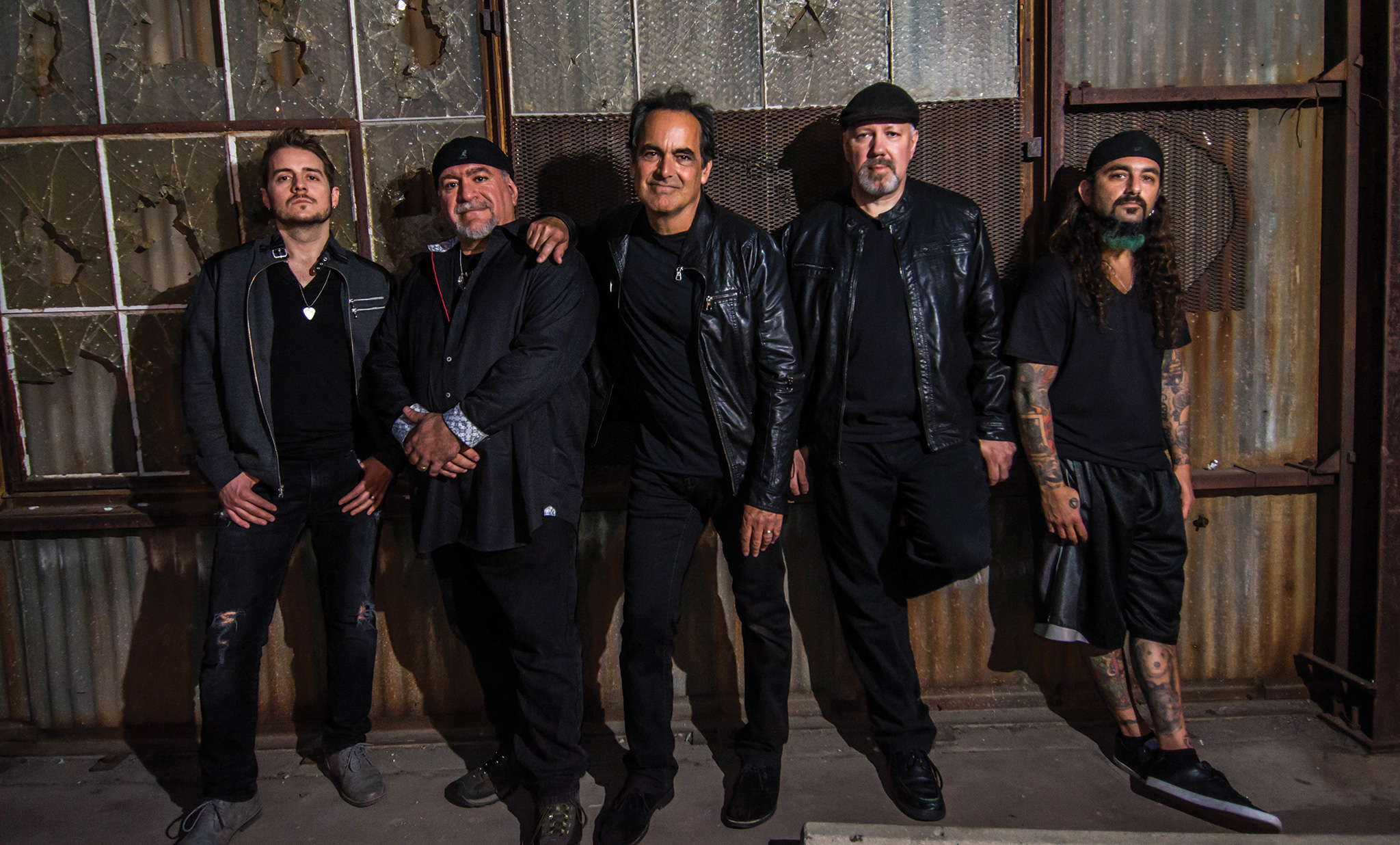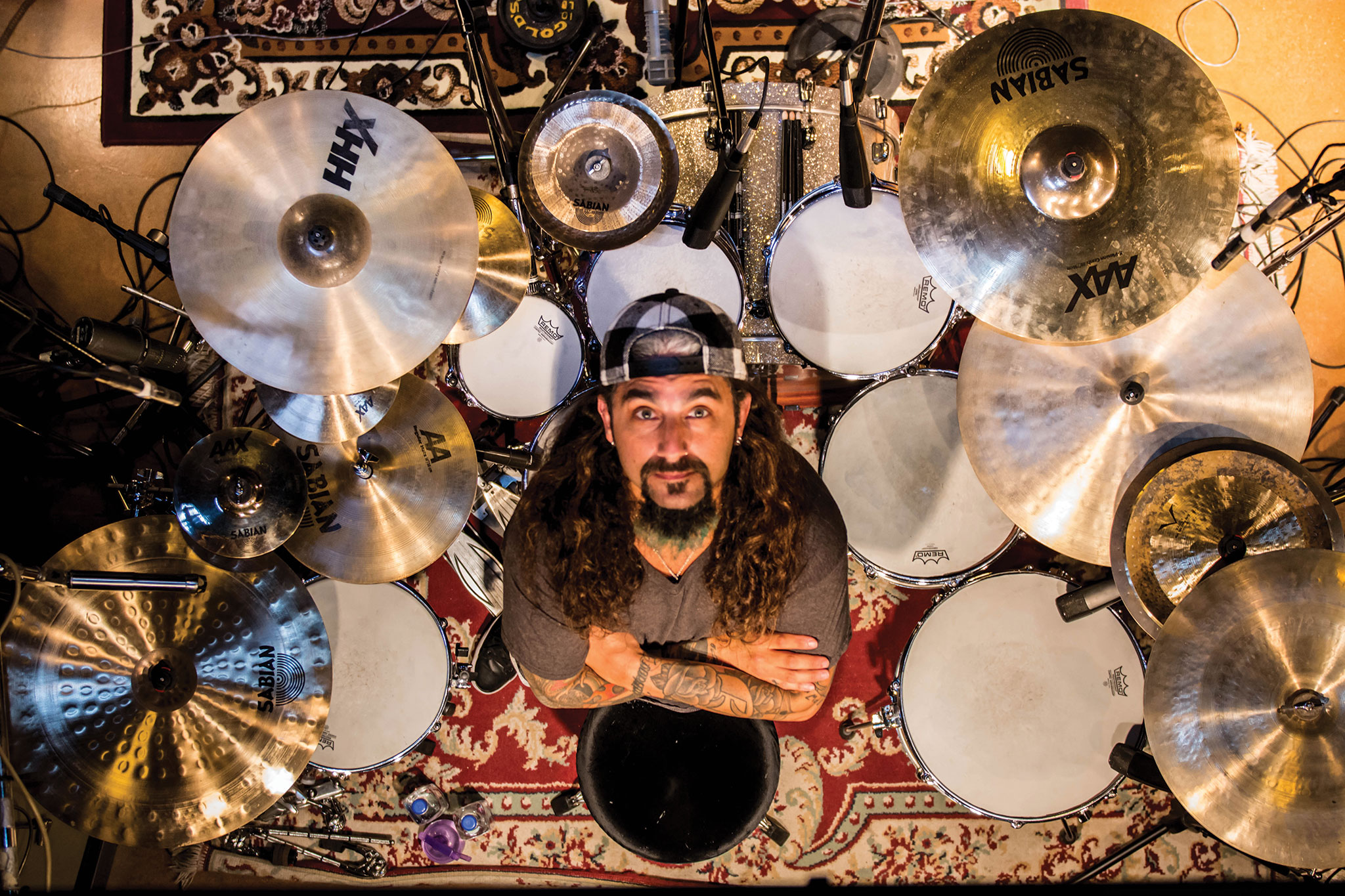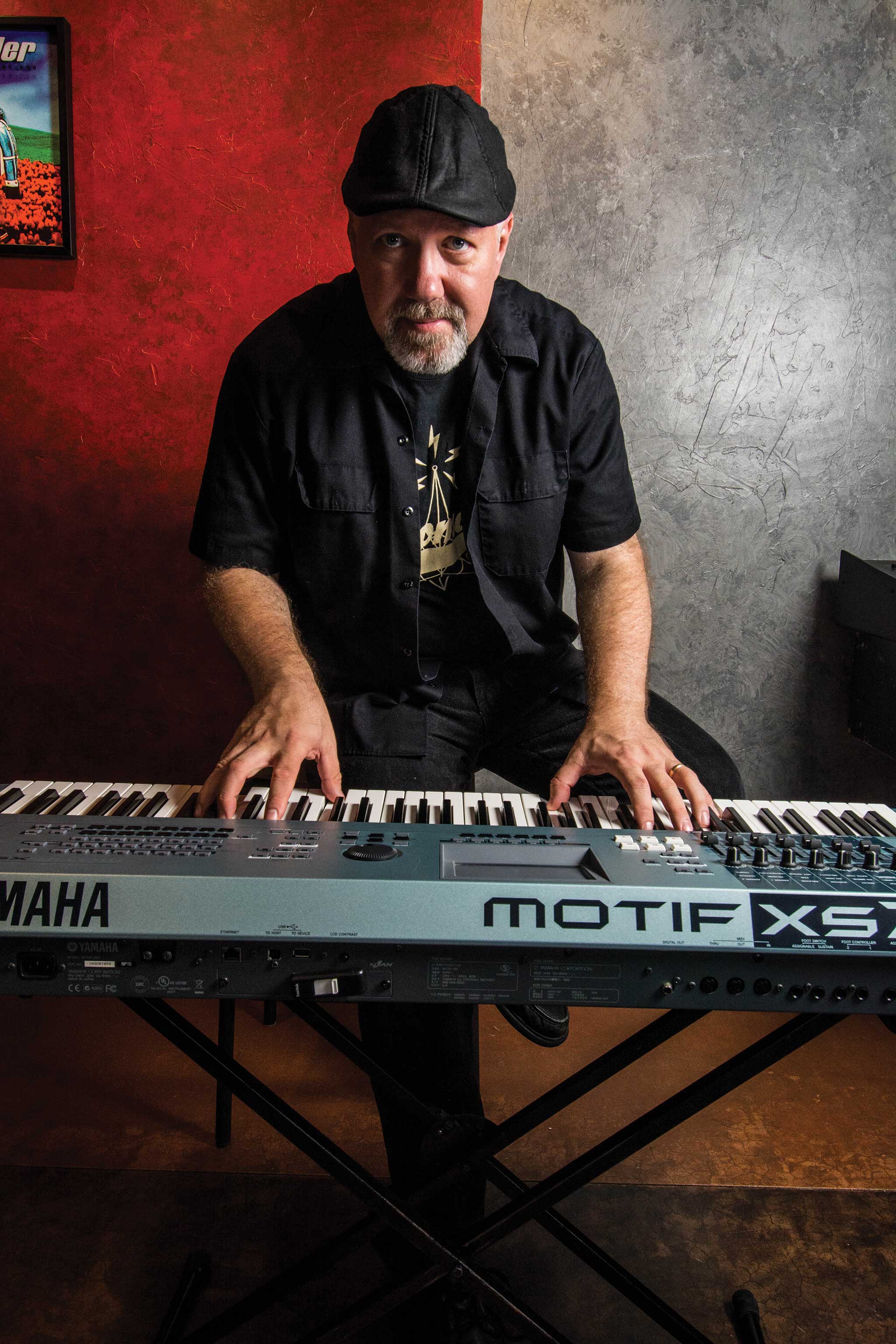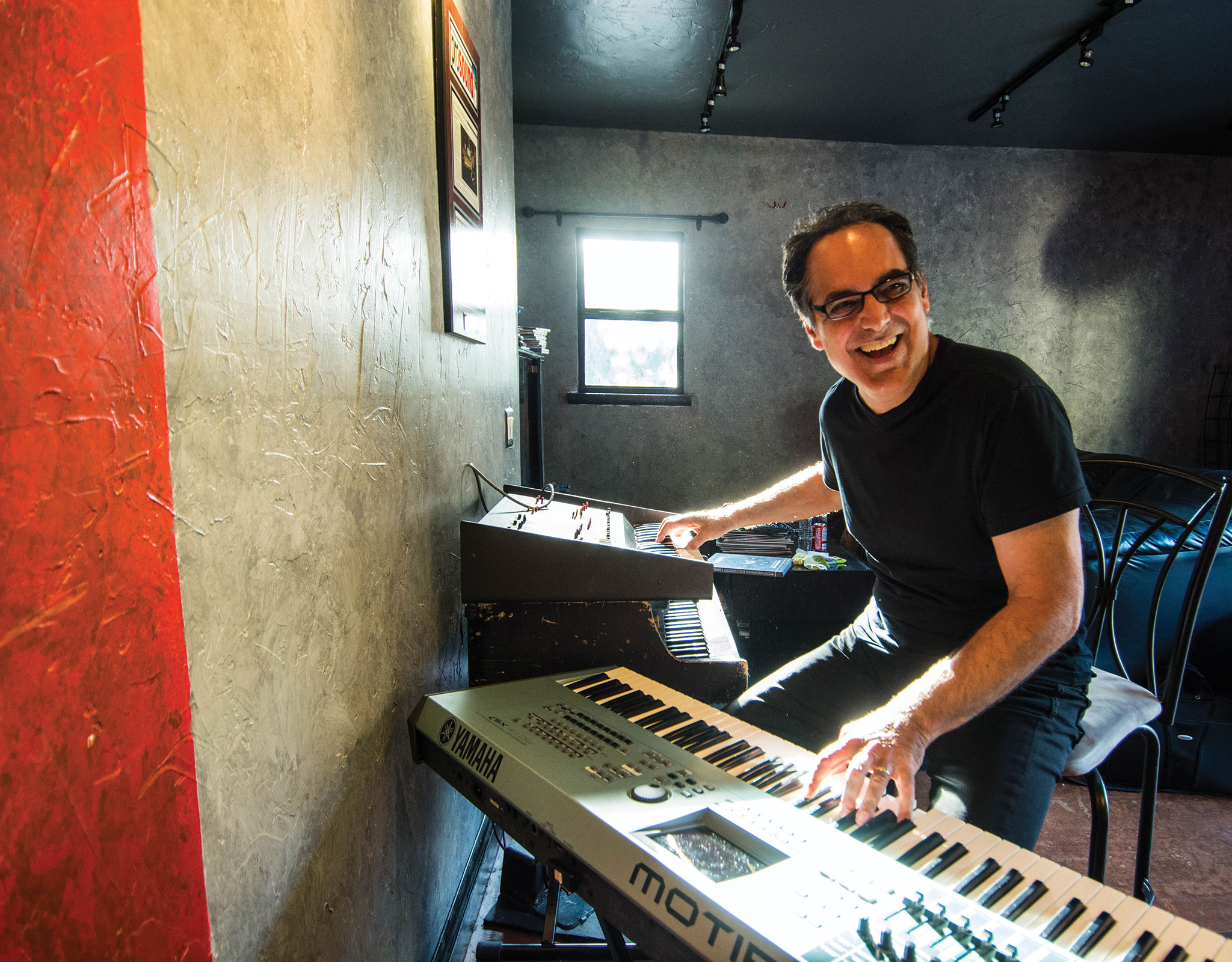For those less understanding and appreciative of the nuances of progressive rock, the overarching theme covered on the Neal Morse Band’s new album, The Similitude Of A Dream, might generate unsympathetic snorts of derision. It is, after all, a double concept album with the expansive lyrics referencing John Bunyan’s 1678 tale of Christian redemption, The Pilgrim’s Progress. Covering such a novel, which would appear to be an obvious choice for a band requiring a ready-made tale to fit around their music, was however something that Neal Morse was unexpectedly reticent about.
“I just wasn’t sure if it was what we should do next, or if we should do some big concept album,” he admits. “Somebody sent me a suggestion that I do a concept album based on Pilgrims Progress, which I had never read. I guess that’s because I am now known as the concept album guy, which is funny because in Spock’s Beard, we avoided doing any concept albums until the very end. The book itself is an old Christian book, it’s pretty confronting and frankly some of it is a little corny. But last December, I awoke with music playing in my head. I went to the piano at five in the morning and began to work on these ideas that I was having. I just had this sense that I needed a direction and I didn’t know what I wanted to say. The idea of the Pilgrim’s Progress had kept in my mind and I was in an experimental mode, so I just Googled notes for that book. In January, the band got together to write, I presented all of that stuff to them and none of us were really sure that it was what we wanted to do. In fact, I kind of didn’t want to do it. But as we worked on the music, it just seemed like it was the direction that it all wanted to go. After we began to work on it though, it became obvious that was where we were heading and we just put our full hearts into it.”

Morse’s ability to awake at five in the morning with a mind full of musical themes is a rare one. His Transatlantic colleague Pete Trewavas once described him as a “walking blinking song sheet who has a fresh idea every single moment of the day”. It’s something Morse doesn’t take for granted, adding, “I’m not blasé about it and I’m in a constant sense of wonder about it. I’m just really thankful and I consider it all to be a gift from God.”
The Neal Morse Band’s drummer, Mike Portnoy, is predictably less reticent about praising Morse’s ability to quickly write consistently elegant music.

“He’s incredible and I have never seen anyone like that, and that’s why I have always said that I hold him in such high regard as a songwriter,” he effuses. “I honestly put him in the same category as Pete Townshend or Lennon and McCartney. There are some people who are just natural conduits for songs and Neal is one of those people. He’s just so prolific and it isn’t something that has to be forced. He’s not the sort of person who has to sit down and think, ‘Okay, I have to write a song today,’ and struggles to do it. He’s the sort of person where it’s just constantly flowing through his head 24⁄7. And it’s not even like it is always three-minute pop ditties, as in Neal’s case, he will come up with a 20-minute prog epic in his sleep. I mean, I’ve never worked with anyone like that and that makes it great when we all sit down together.
“I’m more of a collaborator in terms of my input whereas Neal is a definitely a songwriter, so when we come together as a band, there’s so much for us all to work with.”
With so much material for the band to shape, it wouldn’t be unreasonable to think that recording an album would be a relatively effortless experience. Yet halfway through the process, Morse and Portnoy were involved in
a heated exchange that threatened the album. That disagreement, which led to both storming out of the studio, centred on the drummer’s reticence to begin work on a second disc once the first had been completed. From Morse’s perspective, he perceived Portnoy’s concerns to be a reluctance to risk doubling the length of the album if the material wasn’t of the highest standard.
“I’m telling you this because it is an important part of the album’s story, as there was a real struggle when we were making the album,” he confides. “Mike really wanted it to be a single disc. I didn’t mind it being a single disc, but we had 45 minutes of music that I felt was really good and that was the outline of what would become disc one. We were only 20 or 30 pages into the book. So I was thinking that if we were really going to explore this story and bring it to fruition, I knew that it was going to have to be a double. Otherwise, how are we going to wrap this thing up in another 20 minutes? Anyway, on the Sunday, we got up to where Breath Of Angels is and Mike was kind of wanting to wrap it up. He and I really came to an impasse – we were both unhappy and we both really kind of quit.

“Making music together is like anything else: when it’s working, it’s heaven and when it’s not, it can be hell. He didn’t tell me directly, but I think what he was feeling was, ‘We don’t have enough good material.’ About four in the morning on the Tuesday, the Lord woke me up, I started to write and I felt like, ‘Let me see what we can do to make it better.’ So I kind of sketched out a lot of music that morning. I really wanted to save the situation and by the time Mike had arrived at noon, I think I’d written three songs for the second disc. He came in, we both started apologising and he had ideas about what to do, and I had all these ideas, so Tuesday just turned into this great day. By the time we finished on the Thursday, I felt we had a great album but Mike said that he felt we had just made the album of our careers. That’s what he said to us. So for us to go from being really tense in the studio to being really joyous was crazy.”
However, Portnoy cites that his refusal to initially even consider recording a second disc was rooted in the fact that his former band, Dream Theater, has just released their double concept album The Astonishing. Appreciating that the Neal Morse Band album would be compared to that release by fans, he feared that they may be accused of copying.
“I’ll start by saying that in the 20 years now that Neal and I have been working together – and we’ve made 18 studio albums at this point – we rarely disagree. If I’m going to be completely honest, the main reason I was really resistant to the idea of a double album was that Dream Theater had just put out a double concept album. I knew it would inevitably be compared to Dream Theater and I didn’t want people to think that we were copying them. So I was desperately fighting the idea. When we got to this crossroads, I kind of just shut down and I was really forcing my will on to the guys. That just made for a really uncomfortable day in the studio and it got to a point where Neal and I walked out.
“It was completely unheard of for us to butt heads like that. It was a horrible day and without doubt the worst day I’ve ever had in a recording session. Basically he left the session, I went back to my hotel room and I slept on it and decided to go in the next day with an open mind and stop resisting the double album idea. I went in, apologised to the guys, and the next thing we knew we were at the end of disc two and had made some magic. I mean, The Battle on disc two is one of the sickest instrumentals that I’ve ever been a part of, and it’s just insane. I guess the lesson was for me to let the magic happen and stop fighting it.”

It’s reasonable to suggest that there remains an element of the prog community who remain fazed by the religious undercurrent which permeates Morse’s work. Indeed, given the subject matter of this current album, that reluctance is likely to remain. Yet the lyrics are far from the preaching that some may imagine them to be, and instead are suitably vague and subjective. Does Morse accept that his born-again Christianity causes a potentially unsurmountable issue for some listeners?
“Yeah, I understand that but I don’t think that an album like this would be terribly offensive in that way,” he says. “I think that’s the great thing about art as it can speak to people in a way that other things such as preaching can’t. It’s telling stories and things that come from the heart. Music is the most beautiful thing as it can bypass the brain and go straight to the heart, and there are things on this album that are going to do that.”

“It’s a shame and I know once he left Spock’s Beard and began his spiritual direction, a lot of people haven’t given him a chance,” adds Portnoy. “It really is their loss because I think some of these albums that we have made through the years are some of the best work of both of our careers. Personally, I don’t get hung up on that and I embrace Neal’s lyrics just as much as I would a Slayer album. I’m just an open-minded music lover and I treat people’s lyrics as their personal direction and I don’t judge them, or music based on it. I honestly couldn’t care less about the lyrical concept or content. I trust Neal’s direction and he’s always written some incredibly spiritual and uplifting lyrics. That’s his department and I stay out of that area.”
For all the unhappiness that surrounded a segment of the recording process, the resultant album is unquestionably captivating, and it’s one that both Morse and Portnoy are blatantly proud of. It’s a recording that deserves and almost demands attention, and although the Neal Morse Band are still operating at a level far beneath that of some of the larger progressive acts, Portnoy is right to assert his belief that the band are capable of musically matching some of those names.

“I really hate to once again bring up the Dream Theater comparison,” he says, “but they did get so much attention with that album – whether or not people liked it isn’t the point. I would hope this album at least gets the same attention, and that everyone who heard their album will hear this album as well. It really deserves to be heard by anybody who knows anything about my past.
“Yes, I was very concerned about the Dream Theater comparison but now, at the end of the day, my God, I couldn’t be more confident. Now I want people to make the comparison, because I think what we came up with is an absolute masterpiece. I think it could stand side by side with Tommy or The Wall. I know it takes balls to say that, but it’s the truth and it’s one of the greatest things that I’ve ever been a part of.”
The Similtude Of A Dream is out November 11 on Radiant Records. For more information visit Neal Morse’s website.
